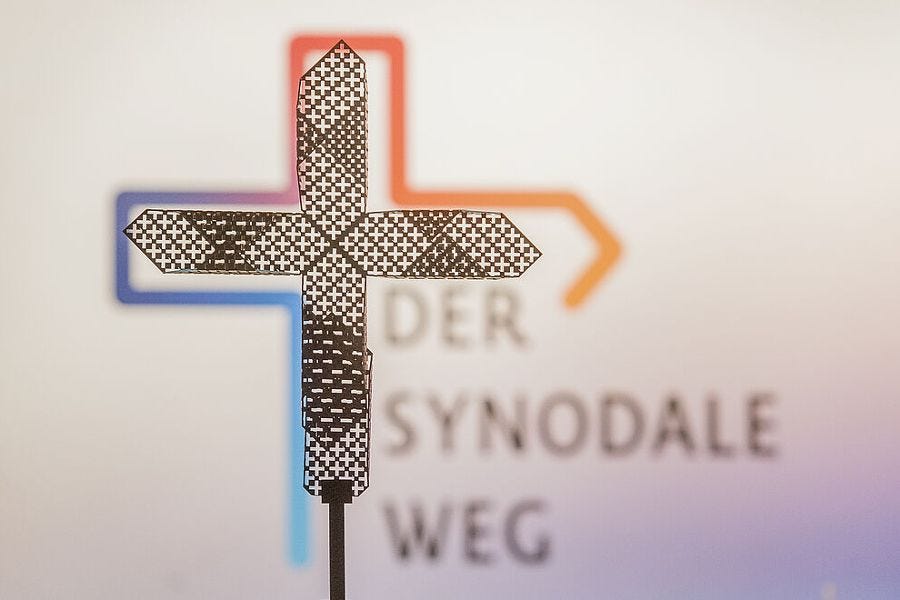
Members of the German “synodal way” pressed ahead with their voting program on Friday following a day of drama in Frankfurt.
The initiative’s plenary assembly failed to pass on Thursday a text calling for a change in the Church’s approach to sexual ethics, after the resolution was unable to gain enough support from bishops. After the vote was announced, there was a protest and some participants left the meeting.
Irme Stetter-Karp, president of the powerful lay Central Committee of German Catholics (Zdk), said that bishops who opposed the text should have expressed their opposition more clearly during earlier debates. But supporters of the minority argued that there was an intimidating atmosphere at the assembly.
The synodal way is a multi-year initiative bringing together bishops and lay people to discuss four main topics: power, the priesthood, women in the Church, and sexuality. The Vatican has repeatedly intervened in the process amid concerns that it is seeking to overturn established Church teaching and structures.
According to German Catholic media, German bishops’ conference chairman Bishop Georg Bätzing announced on the morning of Sept. 9 that he would bring the rejected text to the German bishops’ ad limina meeting in Rome in November, as well the synod on synodality in Rome next year.
He added that he would also seek to implement the text in his own Diocese of Limburg, saying: “I know several bishops will do similarly.”
On Sept. 8, the first day of the three-day meeting, participants were also scheduled to discuss a 31-page document entitled “Women in ministries and offices in the Church.” But the debate was postponed.
The document says that “for generations, many women have known that they were called by God to be deaconesses or priestesses” and “in future, it should no longer be gender that decides on the allocation of ministries, but the vocation, abilities, and skills that serve the proclamation of the Gospel in our time.”
Synodal way members turned to the text late on Friday morning after the presentation of a report on combating sexual abuse. Proponents of the document on women in ministries repeatedly addressed the synodal way’s minority, urging them to voice their objections, as well trying to anticipate and allay their concerns.
The meeting was then adjourned for a Mass and lunch. The discussion was expected to continue in the afternoon.
Following a vote, the assembly is due to consider a 20-page text entitled “Priestly existence today.”
The text calls for “priestly ministry to be truly inculturated into contemporary society” in the wake of the clerical abuse crisis, which has had a devastating impact on the German Church.
Participants are also scheduled vote on a document called “A re-evaluation of homosexuality in the Magisterium” that proposes alterations to the Catechism of the Catholic Church, as well as a controversial proposal to create a powerful permanent “synodal council,” composed of bishops and lay people, to oversee the Church in Germany.
A total of 14 papers are slated for discussion, with five facing their first vote and nine having their second reading, though it is unclear whether this is possible before the meeting ends on Saturday. After documents pass their second reading, they are formally adopted as resolutions of the synodal way.
The Frankfurt assembly will be followed by smaller meetings of members of the initiative’s four “synodal forums,” each dedicated to one of the initiative’s four principal themes.
All participants are scheduled to gather again in Frankfurt on March 9-11, 2023, for final votes on the synodal way’s remaining documents.




